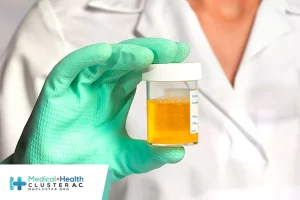CONDENA MH CLÚSTER ATAQUE ARMADO A HOSPITAL ARCÁNGELES
Leer más
Airborne SARS-CoV-2 ‘Could Lose 90% of Infectiousness After 20 Minutes’

The capacity of SARS-CoV-2 to infect people from aerosol droplets wanes quickly over time, according to UK researchers.
A study, which has yet to be peer-reviewed, found infectivity of the airborne virus fell to around 10%, 20 minutes after being exhaled, with most of the decline taking place in the first 5 minutes.
The findings could be useful in framing mitigation strategies to reduce the spread of COVID-19, scientists at the University of Bristol said.
Findings from the Study Preprint
The study, uploaded to the preprint server medRxiv, measured the stability of SARS-CoV-2 from 5 seconds to 20 minutes, using a novel instrument to investigate physicochemical changes that take place in the droplet, and exploring their impact on the survival of the SARS-CoV-2 virus.
The scientists reported that in conditions of low relative humidity, infectivity declined almost immediately, and fell to an average of 54% within 5 seconds of the aerosol being exhaled.
At high relative humidity, infectivity was noted as more gradual, with infectiousness steadily declining to 48% within the first 5 minutes.
The shorter survival of the airborne virus in low humidity was attributed to salts within the droplets crystalising, compared with the ability of droplets to remain intact with less evaporation in high humid conditions.
Infectivity in high humid conditions stemmed from an increase in pH of the droplets, the authors said.
The difference between infectivity in aerosol particles suspended at both high and low relative humidity converged over time, until virus survival was indistinguishable after 10 minutes.
Overall, infectivity was seen to decline due to particle crystallisation and aerosol droplet pH change.
The temperature of the air did not significantly affect the results, the study showed.
Half-life of the Virus ‘May be Shorter Than Currently Understood’
The study, led by Prof Jonathan Reid of Bristol’s School of Chemistry, concluded: “While the current general consensus is that the half-life of SARS-CoV-2 in the aerosol phase is between 1-2 hours, if not longer, we report an initial rapid decline in infectivity within a few seconds to minutes of aerosol generation.
“Under all conditions measured, the majority of SARS-CoV-2 is inactivated within 10 minutes of aerosolization.”
The investigation did not include samples of the Omicron variant of SARS-CoV-2. It examined three variants, including Alpha, all of which were found to have a similar degree of airborne stability at both high and low relative humidity.
https://www.medscape.com/viewarticle/966837?src=soc_fb_220120_mscpedt_news_mdscp_aerosol&faf=1
Créditos: Comité científico Covid




